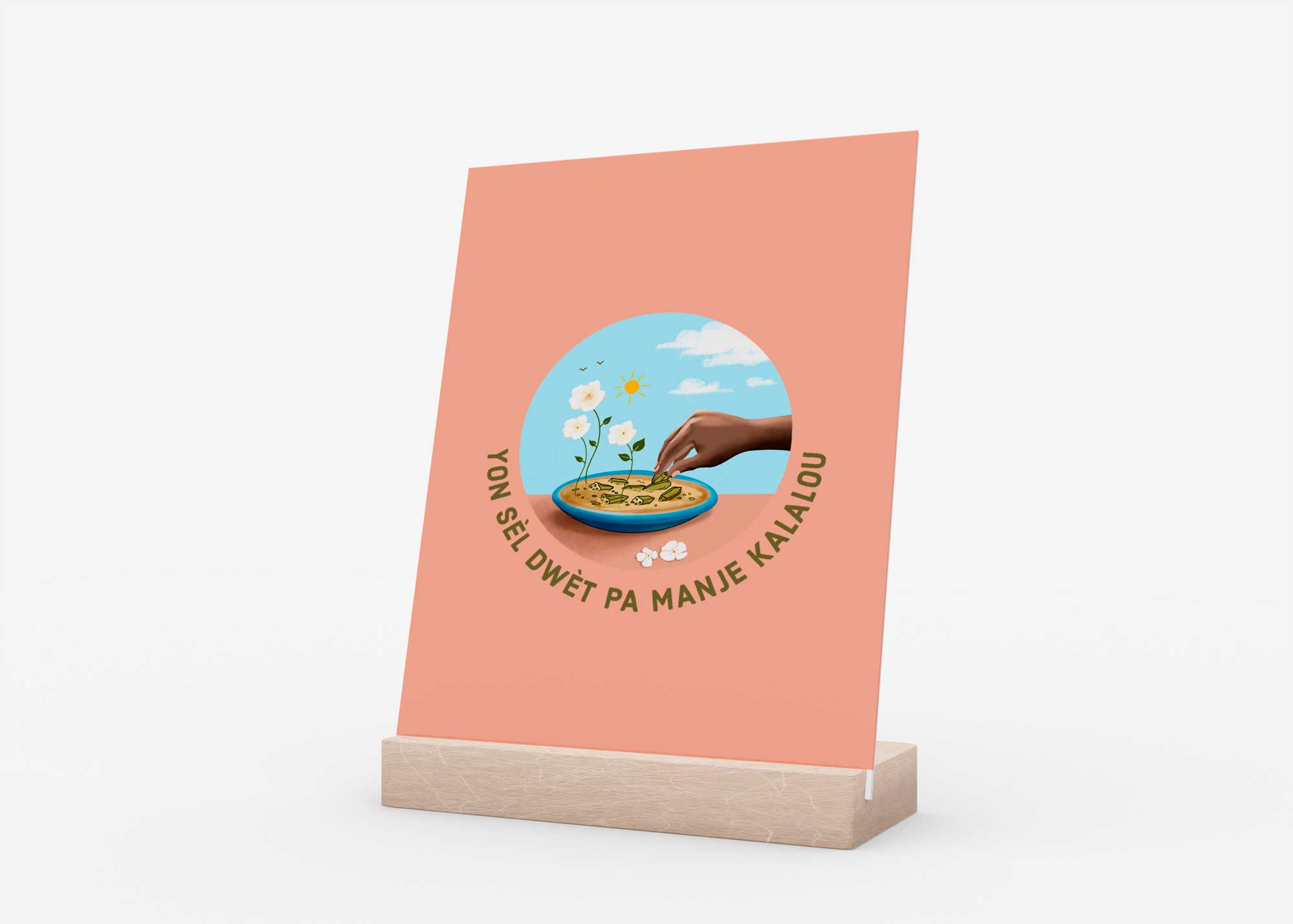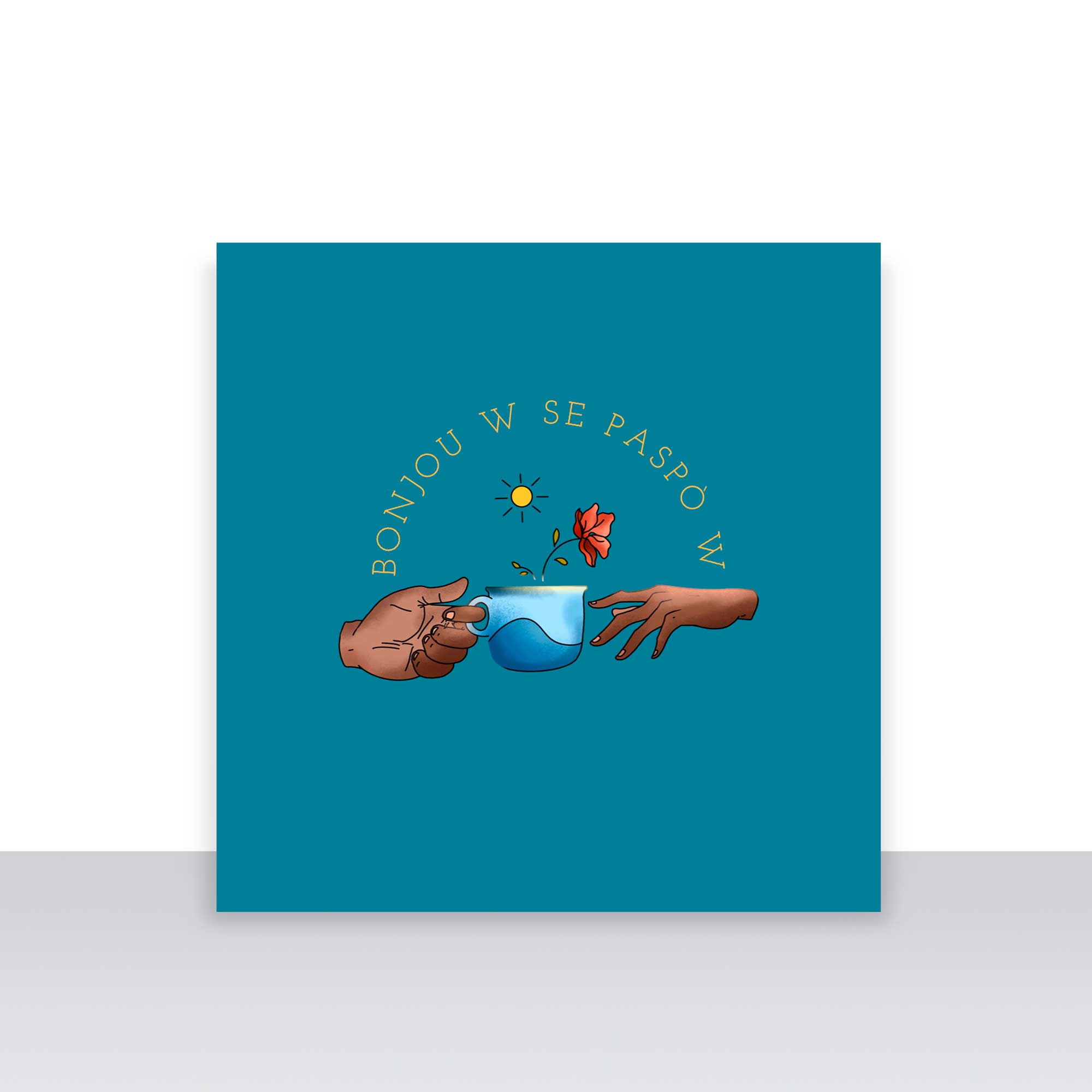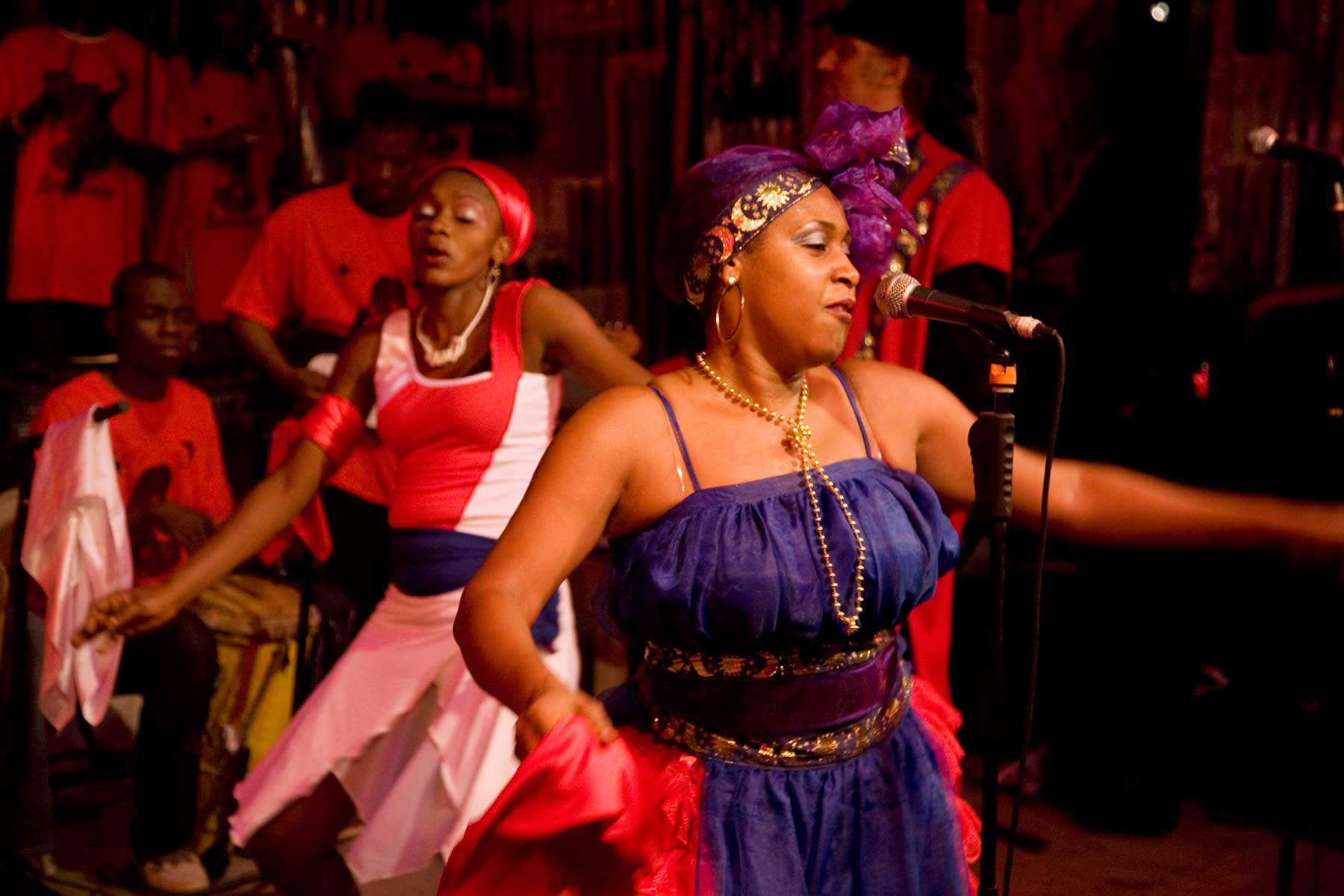
Photo: RAM.com
Catch a show with Haitian Vodou rock and roots band RAM
Every Saturday night at the Oloffson, the band RAM delivers an unforgettable performance of Vodou-infused rock. Here’s what you need to know before you go.
Every Saturday night at the Hotel Oloffson, the band RAM – a Haitian national treasure – delivers an unforgettable performance of Vodou-infused rock. If you’re not a guest at the hotel or paying for a sit-down dinner, you’ll need to pay an entry fee of 500 HTG (about 5 U.S. dollars). The show starts around 10:30. Expect sing-a-longs with an enthusiastic crowd and dancing all night long.
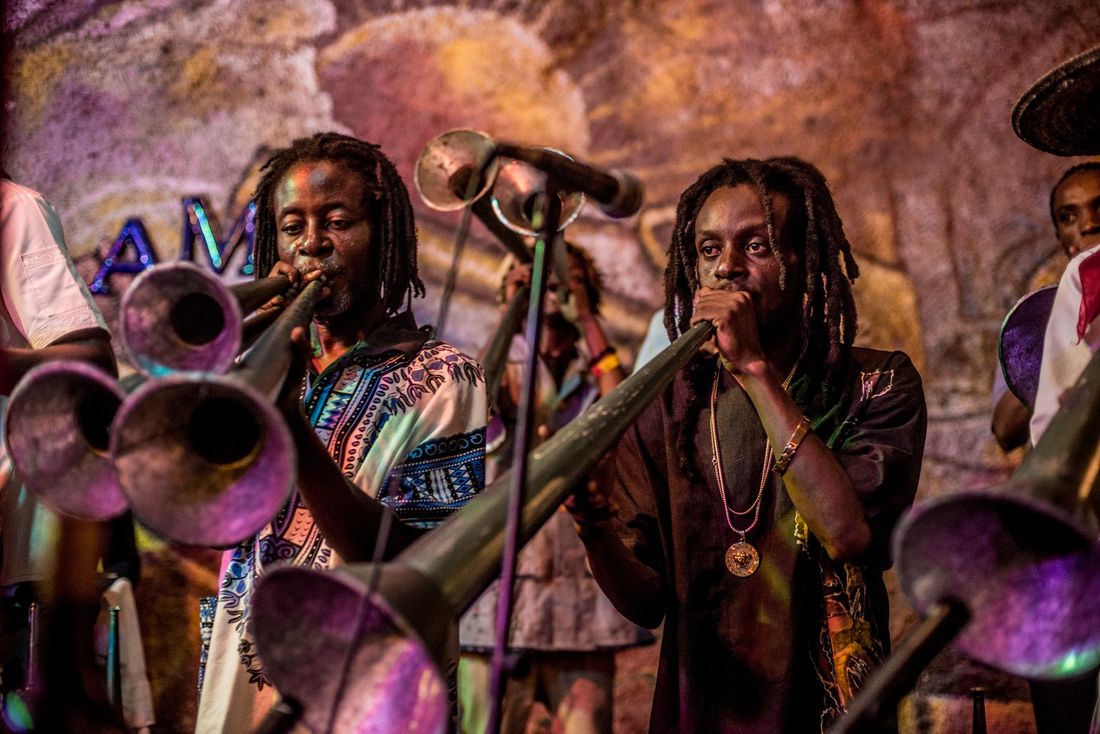
Photo: RAM.com
On the gothic gingerbread verandah of the Oloffson, you can join a decades-long tradition of watching the sun set over Port-au-Prince with a rum sour or rum punch. On Saturday nights, there’s another ritual going on.
Weekly performances by RAM have become a ceremony loved by all levels of society. Remarkably, in a country where consistency is hard to find, the band has consistently gigged at the Oloffson since 1990, when the band’s frontman took over running the hotel. In fact, the band gets its name from the initials of the Oloffson’s owner, Richard Auguste Morse. Morse’s wife, Lunise, is the lead singer and main dancer.
A “Vodou rock and roots” band, RAM incorporates traditional Vodou lyrics and instruments, such as rara horns and Petwo drums, into modern rock-and-roll grooves. Their lyrics are sung in a macaronic medley of Haitian creole, French and English that islanders and diaspora can appreciate especially. To hear it is to connect with a distinctive sound that could only have been born in Haiti.
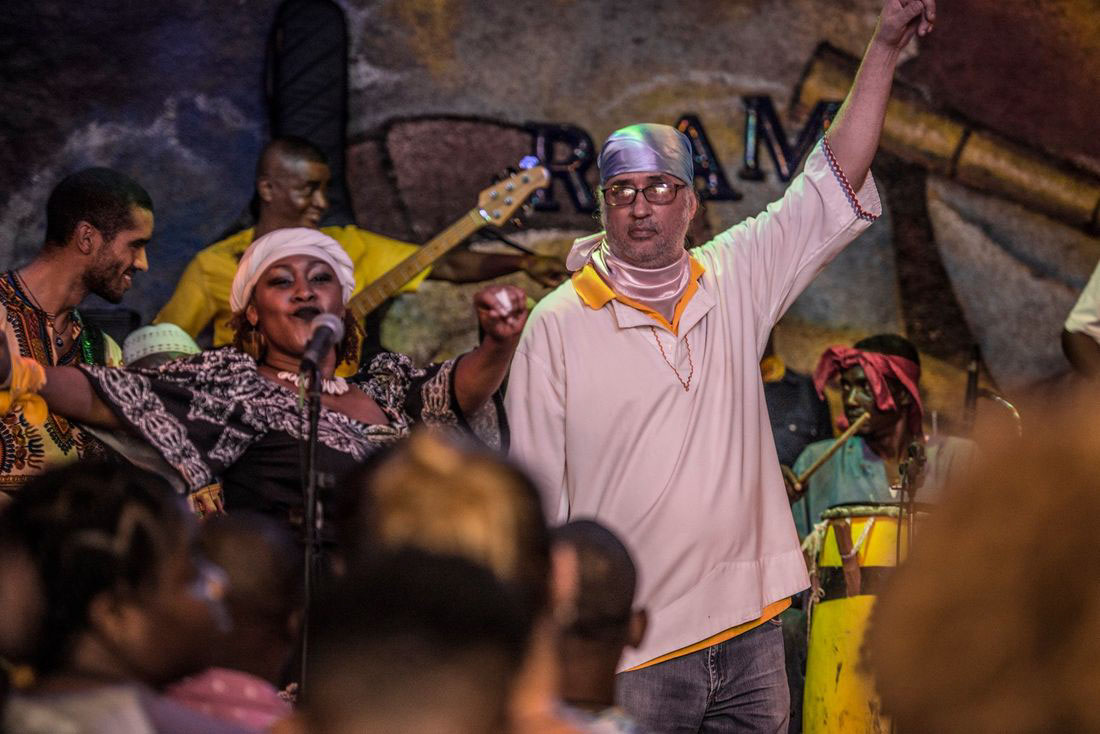
Photo: RAM.com
RAM live: an unmissable experience
First off, expect to see anyone and everyone here. The shows are and have always been attended not just by often-international hotel guests but a diverse spectrum of the country’s political and ethnic groups and subcultures. Humanitarian workers line the front row next to cross-dressed dancers and Haitian artists from nearby downtown neighborhoods. Corner tables are occupied by foreign ambassadors and visiting celebrities, or Grammy award-winning musicians with a love for Haiti.
The lights are few and far between, and often shine out blue and red. Near the permanent stage erected in the heart of the Oloffson mansion, genuine vodouwizan practitioners can be spotted in the throng of dancers. Some of the people in the crowd have been regulars here for 20 years. One woman in a white traditional frock and elaborate satin turban loves to spray sacred flower-scented florida water on the crowd. Many know the lyrics by heart, no matter what decade the song is from. Several people appear to have entered their own worlds, dancing with unearthly vigour, evoking the scenes of ritual possession one might see at a Vodou ceremony or at the Haitian Day of the Dead.
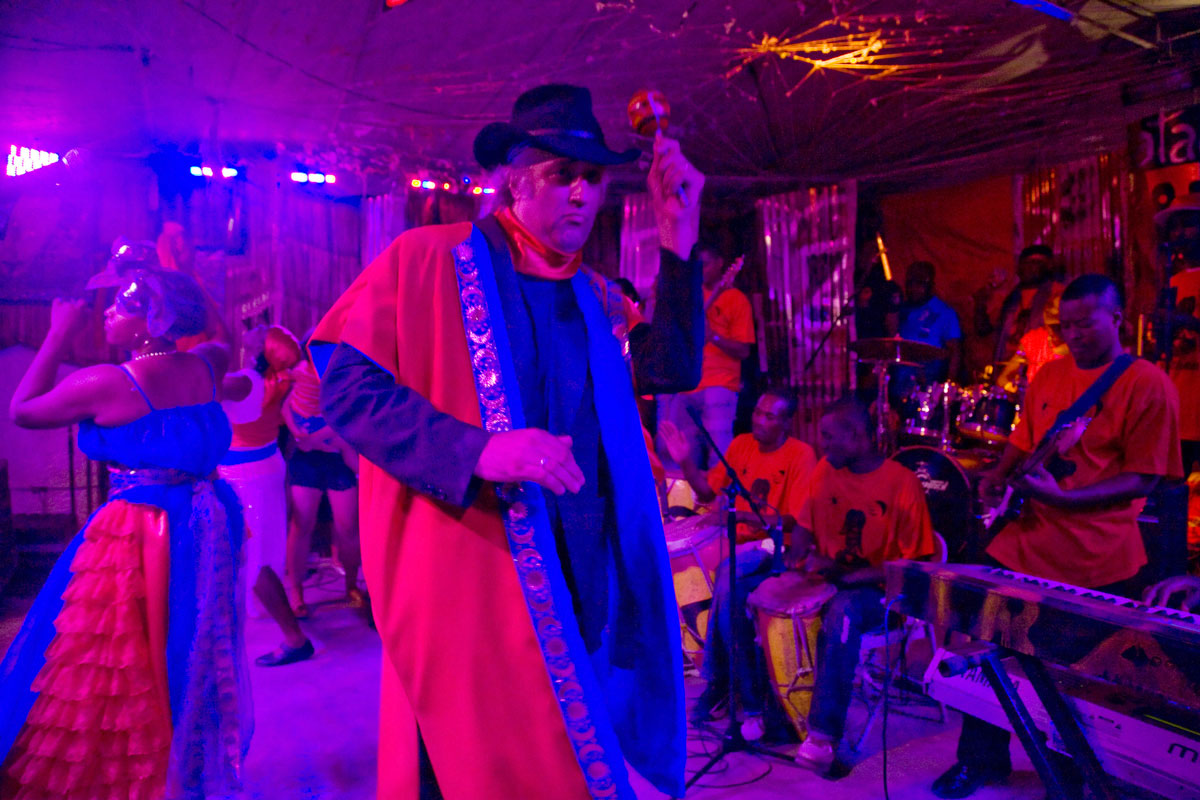
Photo: RAM.com
The early days of RAM
The band started in 1990 when Morse negotiated the lease for the Hotel – then very dilapidated. He created a folklore dance troupe along with his wife and a group of musicians – many from the poorer districts of nearby downtown neighborhoods.
RAM prides itself on having deep roots but always adapting to the times. Many of the lyrics have subtle or not-so-subtle political messages. In the new release “Ayiti Leve”, the lyrics (in Kreyòl) say: “Haiti you sleep too much. It’s time to wash your eyes.” The music video shows the corridors of the Oloffson clouded in darkness. The lead singer’s son, William – also bass guitarist for the band – sits on a traditional high-backed wooden chair in the dark. His mother Lunise walks through the french doors and hands him a candle, illuminating his face and the iconic porch behind him.
The Vodou-inspired drumming is classic RAM but this time the visual is unexpected. “Wake up. See where you are,” the lyrics continue. One by one, Lunise places a candle in each of the band members’ hands. It’s the same shadow play that makes visitors of the Oloffson aware they are wading thickly into something unseen.
Their 2020 Carnival song, “Kongo Lazil O (Kan’w Pran Ou Konnen)” marked RAM’s 28th carnival song release, spanning an era that has seen violent revolts, revolutions, and sometimes unpopular public opinions of RAM’s frontman Morse.
During the years of Haiti’s military regime, one of RAM’s songs, “Fèy” (“Leaf” in english), was censored nationally and eventually banned from radio play by the regime, who correctly perceived it to be a song covertly supporting the exiled President Jean-Bertrand Aristide. In defiance of death threats, the band continued to play weekly concerts at the Oloffson – until Morse only narrowly escaped a kidnapping, almost being carried out by junta authorities from the hotel in the middle of a performance in 1994. In 1998, the band’s lyrics offended the newly-elected mayor of Port-au-Prince, and they survived an assasination attempt on their float during a Carnival performance. While the Thursday night performances have been switched to Saturdays in 2020, RAM continues to use their iconic stage as a launch pad for social commentary. The band is loyal to providing lyrical provocation to Haiti’s political landscape.
How to see the show
RAM plays on Saturday nights at the Hotel Oloffson, 60 Ave Christophe, Port-au-Prince, in the neighbourhood of Saint Gérard, just near trendy Pacot.
The show is free for hotel guests and dinner customers. If you’re not sleeping at the hotel or paying for a sit-down dinner, you’ll need to pay an entry fee of 500 HTG (about 5 U.S. dollars). The show starts around 10:30 and runs until late.
Written by Emily Bauman.
Published November 2020
Explore Haiti’s Art & Culture

Paradise for your inbox
Your monthly ticket to Haiti awaits! Get first-hand travel tips, the latest news, and inspiring stories delivered straight to your inbox—no spam, just paradise.


